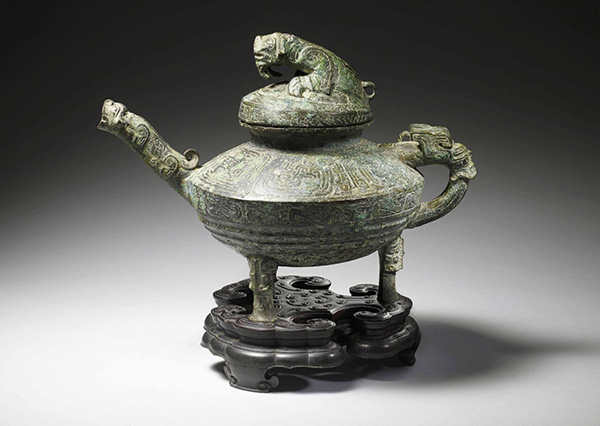More efforts required to bring nation's lost treasures back home


Editor's note: An overseas buyer donated Tiger Ying, a bronze ware of the Western Zhou Dynasty (c. 11th century-771BC), to the National Cultural Heritage Administration in September after buying it at a price of £410,00($517,000) in an auction organized by Canterbury Auction Galleries in the United Kingdom in April. The administration sent the bronze ware to the National Museum of China on Thursday. People's Daily comments:
Tiger Ying is one of only seven bronze ware of its kind produced in the Western Zhou Dynasty existing today.
It was one of the cultural relics looted by the British and French troops from the Old Summer Palace, or Yuanmingyuan, in Beijing on Oct 6, 1860.
China has resorted to various means to bring its lost cultural relics home, which includes diplomatic mediation, negotiation, law enforcement cooperation and judicial litigation. In recent years, more than 4,000 pieces of cultural relics have been returned home through various channels with the joint efforts of different parties.
The Chinese government nowadays attaches great importance to protecting the nation's cultural relics, and will make unswerving efforts to protect the national treasures, and defend the national interests.
The United Nations has specific resolutions and conventions on the protection of cultural and natural heritage, which stipulate that cultural relics obtained by illegal means should be returned to their rightful owners.
The Society of China Cultural Relics estimates that China lost more than 10 million pieces of cultural relics to Europe, the United States, Japan and Southeast Asia since the First Opium War broke out in 1840.
There is still a long way to go for China to bring these lost treasures back home. China should deepen its cooperation with the other countries, invite more social organizations and individuals to take part in this endeavor, and raise the public's awareness of the importance of protecting the country's cultural heritage.


































